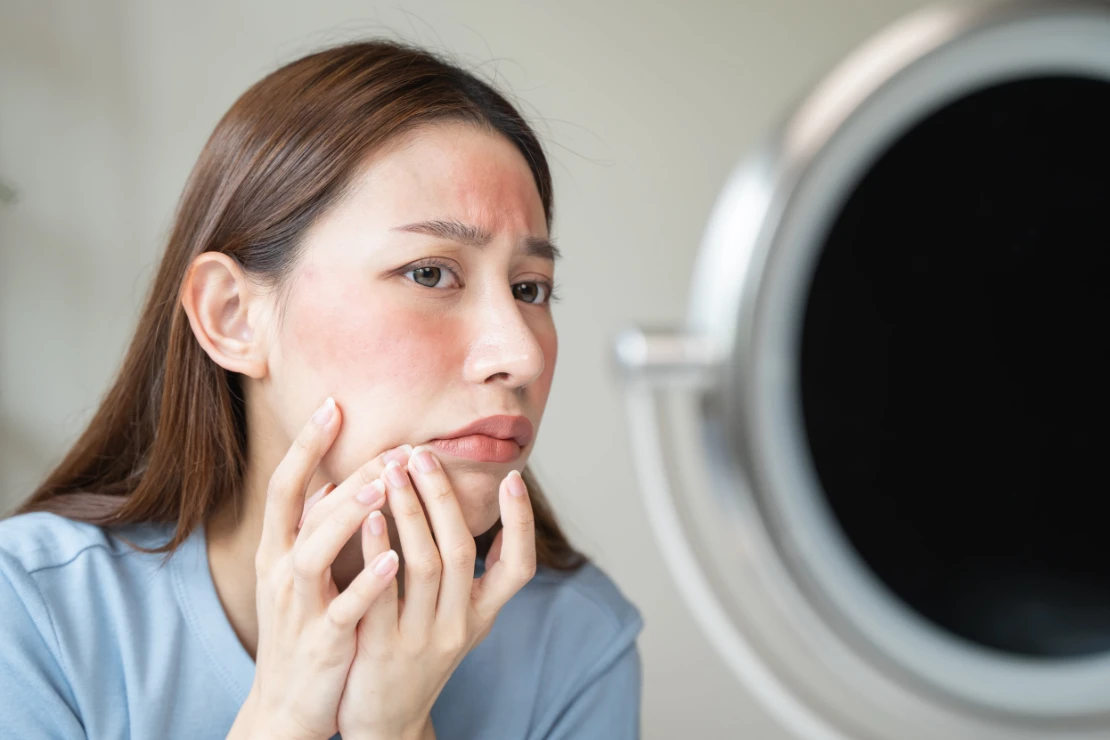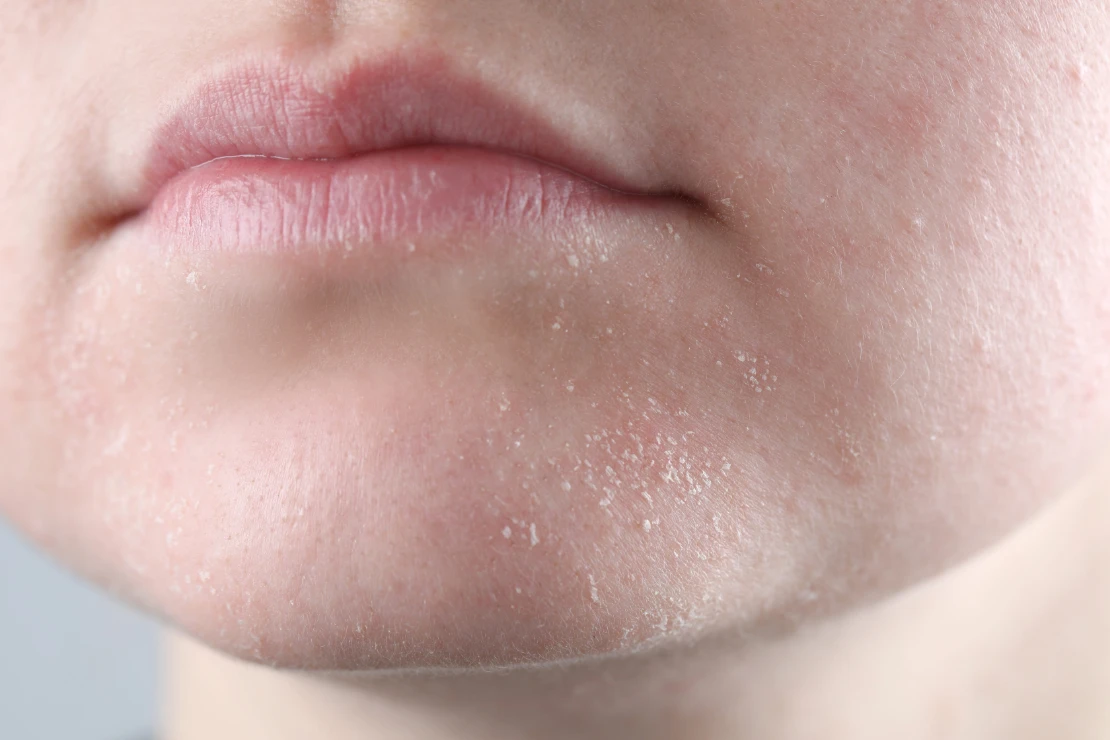Understanding Thyroid Disorders
Hypothyroidism vs. Hyperthyroidism
Thyroid disorders, such as hypothyroidism and hyperthyroidism, significantly impact our body’s functions. Hypothyroidism, characterized by insufficient thyroid hormone production, often leads to symptoms like fatigue, weight gain, and a slowed metabolism. Conversely, hyperthyroidism results from excess thyroid hormones, causing accelerated body functions, weight loss, and nervousness. Both conditions have distinct effects on skin health, reflecting the body’s internal hormonal balance. According to the American Thyroid Association, thyroid disorders are significant conditions affecting various bodily functions, including skin health. Research in the Journal of Clinical Endocrinology & Metabolism highlights the diverse symptoms of hypo- and hyperthyroidism.
“Believe in your body’s ability to heal. It is more powerful than you know.” – Medical Medium Thyroid Healing
Graves’ Disease and Skin Manifestations
Graves’ disease, a specific type of hyperthyroidism, can lead to noticeable skin changes. One such change is pretibial myxedema, a unique rash that typically appears on the shins and feet. This condition is a hallmark of Graves’ disease, signaling an advanced stage of thyroid imbalance. The rash’s texture and appearance can vary, often resembling orange peel, indicating the severity of the underlying thyroid issue. The National Institute of Diabetes and Digestive and Kidney Diseases provides detailed insights into Graves’ disease and associated skin conditions.

Dermatological Symptoms of Thyroid Disorders
Hypothyroidism-Induced Skin Changes
In hypothyroidism, the skin often becomes dry, pale, and coarse. The reduced level of thyroid hormones slows down the body’s metabolism, affecting skin cell regeneration. This leads to a flaky, rough texture and can cause the skin to crack, especially in cold weather. The skin may also appear puffy or swollen, a condition known as myxedema, which is particularly noticeable on the face and around the eyes.
Hyperthyroidism and Skin Health
Hyperthyroidism, on the other hand, often results in thin, fragile skin. The excess of thyroid hormones accelerates the body’s processes, including skin cell turnover. This can lead to a smoother but more delicate skin texture. Patients may also experience increased sweating and a flushed appearance, particularly on the palms and soles. The skin might feel warm and moist to the touch, reflecting the overall increased metabolic rate.
Recommended Sources for additional information.
In-Depth Analysis (Case Study):
“A Study on Cutaneous Manifestations of Thyroid Disease”. This study, conducted by Neerja Puri, examines the varied skin manifestations in patients with hyperthyroidism and hypothyroidism. It highlights how hyperthyroidism results in warm, moist skin, while hypothyroidism leads to dry, coarse skin. The study involved 50 patients and provided detailed observations on skin changes associated with each condition. “In the study, 72% of patients had hypothyroidism, and 28% had hyperthyroidism, with distinct cutaneous features observed in each group.”
Thyroid hormone action on skin is classic, with ‘myxedema’ referring to the associated skin condition caused by increased glycosaminoglycan deposition in hypothyroidism,” explains a study from PMC.
Chronic Hives as a Symptom of Thyroid Imbalance
Chronic hives, or urticaria, can be a less known symptom of thyroid disorders. These itchy, raised welts that come and go over weeks or months might signal an underlying thyroid issue. If hives persist without an apparent cause, it’s advisable to evaluate thyroid function. This connection is often overlooked but can be a crucial indicator of thyroid health.
The Role of Thyroid Hormones in Skin Health
Thyroid hormones are vital for maintaining healthy skin. They regulate skin cell regeneration, ensuring the skin remains vibrant and resilient. An imbalance in these hormones can disrupt this process, leading to various skin issues. For instance, an underactive thyroid can result in dry, coarse skin, while an overactive thyroid might cause the skin to become overly thin and fragile.
Dermatologists need to be cognizant of the manifold cutaneous manifestations of thyroid disease,” says Neerja Puri, emphasizing the importance of recognizing skin signs indicative of thyroid disorders.
Managing Thyroid-Related Skin Conditions
Medical Interventions
Addressing thyroid-related skin issues often involves medical treatment to balance hormone levels. For hypothyroidism, this typically includes thyroid hormone replacement therapy. For hyperthyroidism, treatments may involve anti-thyroid medications, beta-blockers, or even surgery in severe cases. These treatments aim to restore hormonal balance, thereby improving skin health. Treatment guidelines from the Endocrine Society offer comprehensive approaches to managing thyroid-related skin conditions.
Lifestyle Adaptations and Home Care
Alongside medical treatment, lifestyle modifications can significantly improve skin symptoms associated with thyroid disorders. Staying hydrated, following a balanced diet rich in vitamins and minerals, and adopting a gentle skincare routine can help manage dryness, flakiness, or excessive sweating. Stress management techniques, such as yoga or meditation, can also be beneficial, as stress can exacerbate thyroid-related symptoms.
Practical Tips for Thyroid Health
- Mindful Eating for Thyroid Health: A diet low in sugar and processed foods can significantly benefit your thyroid. Excessive sugar intake can lead to inflammation, exacerbating symptoms of an underactive thyroid. Opt for whole, unprocessed foods to support your thyroid health.
- Vegetable Choices Matter: While vegetables are generally healthy, some, like cruciferous vegetables (e.g., cabbage, broccoli), can interfere with thyroid hormone production. Moderation is key. Enjoy a variety of vegetables, but be mindful of those that might affect your thyroid.
- Stress Management: Stress can lead to thyroid hormone resistance. Finding effective ways to manage stress, such as yoga, meditation, or even simple breathing exercises, can help maintain thyroid health. Regular stress management can improve overall well-being and support thyroid function.
Early Dermatological Indicators of Thyroid Issues
Early signs of thyroid problems often manifest on the skin. Dryness, unusual rashes, swelling, or changes in skin texture can be early warning signs. Recognizing these signs and seeking timely medical evaluation can lead to early diagnosis and more effective management of thyroid disorders. This checklist from the American Academy of Dermatology provides information on how thyroid disease can affect the skin, hair, and nails.
Interactive Quiz for Thyroid Disorder Symptoms:
This quiz helps individuals assess whether they might be experiencing symptoms related to thyroid disorders such as hypothyroidism, hyperthyroidism, or autoimmune thyroid conditions. It covers a range of symptoms and provides insights into the types of thyroid disorders.
Link to the Quiz: Thyroid Assessment Quiz
Prevention and Wellness
Maintaining good thyroid health is crucial for overall well-being, including skin health. Regular thyroid function tests, a healthy diet, adequate hydration, and stress management can help prevent thyroid-related complications. Awareness and proactive health management are key to maintaining a healthy thyroid and, consequently, healthy skin.
Conclusion
Understanding the intricate relationship between thyroid health and skin is essential. Awareness of symptoms, timely diagnosis, and effective management can significantly improve quality of life. It’s important to consult healthcare professionals for personalized advice and treatment plans.
References
Citation for Reference: Puri, N. (2012). A Study on Cutaneous Manifestations of Thyroid Disease. Indian Journal of Dermatology, 57(3), 247–248. doi:10.4103/0019-5154.96227
http://austinpublishinggroup.com/thyroid-research/fulltext/thyroids-v1-id1008.php
http://www.dermnetnz.org/dermal-infiltrative/pretibial-myxoedema.html
http://www.ncbi.nlm.nih.gov/pmc/articles/PMC3371544/
Thyroid Problems | Hypothyroidism | Hyperthyroidism | MedlinePlus
Hypothyroidism (Underactive Thyroid) – NIDDK
Thyroid Patient Information | American Thyroid Association







